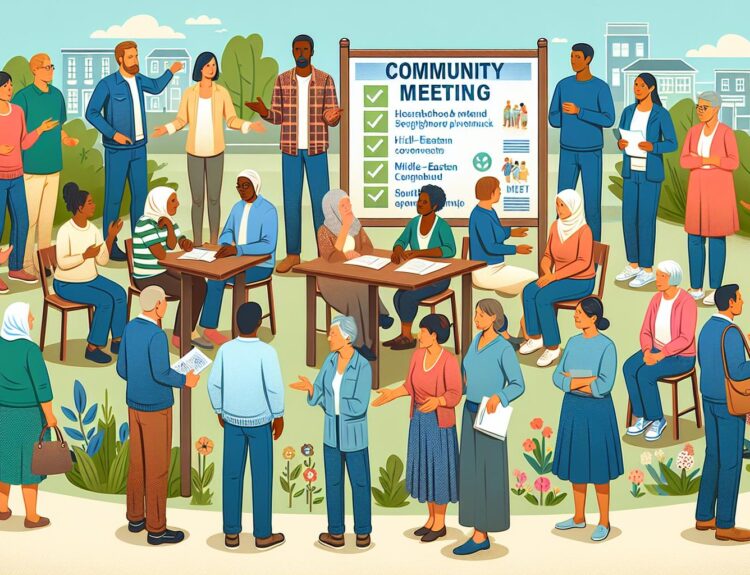Getting a driver’s license in Detroit is like a rite of passage. It’s your ticket to freedom, the open road, and yes, even those infamous Michigan left turns. But before you can hit the gas pedal, there’s a bit you’ll need to know.
Navigating the process can feel a bit like trying to understand a map drawn in spaghetti. Don’t worry, though, I’ve been there. I’ll break it down for you, making it as easy as cruising down Woodward Avenue on a clear day. Whether it’s your first time or you’re just looking to brush up on the latest requirements, I’ve got your back.
Eligibility requirements for a driver’s license in Detroit
When I first embarked on my journey to obtain a driver’s license in Detroit, I learned that understanding the eligibility requirements is the cornerstone of a smooth licensing process. It’s not just about passing the test; meeting specific criteria sets the foundation for your application.
First off, age is a key factor. Michigan law stipulates that you must be at least 14 years and 9 months old to enroll in a Segment 1 driver education course, which is the initial step in the Graduated Driver Licensing (GDL) program. This program is designed to ensure new drivers are adequately prepared and experienced before getting their full license. Here’s a quick breakdown of age-related requirements within the GDL:
| Stage | Minimum Age | Requirements |
|---|---|---|
| Level 1 License | 14 years, 9 months | Completion of Segment 1 of driver’s ed |
| Level 2 License | 16 years | Passing the road skills test and having a Level 1 License for at least 6 months |
| Level 3 License | 17 years | At least 6 months with Level 2 License and no traffic convictions |
Aside from age, residency is another critical factor. You need to be a resident of Michigan to apply for a driver’s license here. That means having a permanent address in the state. For newcomers or those without conventional housing, proving residency might require additional documentation, such as utility bills or a lease agreement in your name.
Identification is another hurdle. The Michigan Secretary of State requires a valid form of ID, proof of Social Security number, and legal presence in the U.S. For many of us, this means gathering documents like a birth certificate, passport, and Social Security card before heading to the secretary of state office.
I’d be remiss if I didn’t mention the importance of vision and health requirements. Your vision will be checked during your application process, and you must meet the state’s minimum visual standard without corrective lenses to drive safely. Additionally, health conditions that could impair your driving ability need to be reported. This might sound daunting, but it’s really about ensuring the safety of everyone on the road.
Types of driver’s licenses available in Detroit
When looking to get behind the wheel in Detroit, it’s important to know there isn’t a one-size-fits-all license. Instead, Michigan offers a variety of driver’s license types, each suited for different driving needs and age groups. I’ve found that understanding the differences between these licenses can really help streamline the process for you.
First off, for younger drivers, there’s the Graduated Driver Licensing (GDL) program. This program is split into several stages, starting with the Level 1 Learner’s License, then moving on to the Level 2 Intermediate License, and finally, the Level 3 Full Privilege License. Each level introduces new privileges and requires more experience. For instance, the Level 1 Learner’s License allows for supervised driving only, while the Level 3 License grants the freedom to drive anytime, anywhere.
For those above 18, the process is slightly more straightforward. You’ll start with a Temporary Instruction Permit (TIP), which allows for driving under certain restrictions to gain the necessary experience. Once ready, you can take the driving skills test to obtain a full Standard Driver’s License.
But what if you’re looking to drive a motorcycle or operate a commercial vehicle? Don’t worry; Michigan has you covered with the Motorcycle Endorsement and a range of Commercial Driver’s Licenses (CDLs). Getting these endorsements or licenses requires additional tests and qualifications, but they’re essential for anyone wanting to legally ride a motorcycle or drive commercial vehicles like trucks or buses in Detroit.
| License Type | Age Requirement | Key Features |
|---|---|---|
| Graduated License Program | 14-17 | Three stages from supervised driving to full privileges |
| Standard Driver’s License | 18+ | Requires passing a driving skills test |
| Motorcycle Endorsement | 16+ | Requires a motorcycle safety course and passing a skills test |
| Commercial Driver’s Licenses (CDLs) | Varies | Different types depending on the vehicle; requires additional tests and certifications |
Remember, regardless of the type of license you’re aiming for, maintaining a clean driving record is crucial. It not only reflects your responsibility as a driver but also affects your eligibility and the overall process of obtaining and renewing your license.
Documents needed for applying for a driver’s license in Detroit
When I was gathering information on what documents I’d need to bring to the DMV in Detroit, I found that the process is pretty straightforward but requires attention to detail. One of the first things I learned is that the State of Michigan, including Detroit, follows the REAL ID guidelines, meaning you’ll need several forms of identification to verify your identity, residency, and legal presence in the United States.
First off, proof of identity is non-negotiable. You can use a certified birth certificate, a valid U.S. passport, or an unexpired foreign passport with a valid U.S. immigration document. I found it super important to make sure that these documents are originals or certified copies; photocopies won’t be accepted.
Next, you’ll need to prove your Social Security Number (SSN). This one’s pretty simple if you’ve got your Social Security card. If not, documents like a W-2 form or a paycheck stub with your name and SSN can also work. This was a relief for me since I tend to store my Social Security card in a super safe place and forget where that is exactly!
Proof of Michigan residency is also required, and you must provide two different documents verifying you live in the state. Utility bills, bank statements, or a mortgage document are great for this. I just made sure the documents were recent, showing my Detroit address clearly. For those under 18, documents under a parent or guardian’s name can be used, which I thought was quite accommodating.
If you’re not a U.S. citizen but legally reside in the country, you’ll need to present documents verifying your legal presence. This may include a permanent resident card, a visa, or employment authorization documentation. I’d recommend double-checking the latest requirements on the Michigan Secretary of State’s website, as these regulations can change.
Here’s a quick list of what you’ll generally need:
- Proof of identity: Certified birth certificate, valid U.S. passport, or unexpired foreign passport with a valid U.S. immigration document.
- Proof of Social Security Number: Social Security card, W-2 form, or paycheck stub.
- Proof of Michigan residency: Two documents like utility bills, bank statements, or mortgage documents.
- Proof of legal presence (if applicable): Permanent resident card, visa, employment authorization document.
Written and road tests for obtaining a driver’s license in Detroit
After gathering all the necessary documents, I found the next step towards getting my driver’s license in Detroit was preparing for the written and road tests. Michigan’s Secretary of State (SOS) has a structured process for these exams, aimed at ensuring that all new drivers have the knowledge and skills required for safe driving.
Written Test: The First Hurdle
The written test is designed to evaluate my knowledge of road signs, Michigan’s traffic laws, and safe driving practices. To prepare, I turned to the Michigan SOS website where they offer a free copy of the Michigan Driver’s Manual. This manual became my bible for a couple of weeks, packed with everything I needed to know. Not only did it cover all the possible questions that could come up in the test, but it also provided valuable tips on safe driving practices.
The test itself is computer-based and administered at SOS branch offices. It consists of multiple-choice questions, and I needed to answer at least 80% of them correctly to pass. I found that taking a few online practice tests greatly helped me understand the format and type of questions to expect.
Road Test: The Final Challenge
Passing the written test gave me a temporary instruction permit, allowing me to practice driving but with certain restrictions. To be eligible for the road test, I needed to log a specific number of practice hours. For me, as an adult learner, this meant at least 30 hours of driving practice, with two of these hours occurring at night.
The road test is divided into two parts: a basic control skills test and an on-road driving test. The basic control skills portion tested my ability to perform tasks like parallel parking, reversing in a straight line, and navigating through intersections. On the other hand, the on-road test evaluated my real-world driving ability in various traffic situations. This included driving in residential areas, expressways, and performing tasks such as lane changes and stopping appropriately at traffic signals.
I found the key to success in the road test was plenty of practice, preferably under different driving conditions and times of day. Also, familiarizing myself with the vehicle I would be using during the test was crucial. Remember, the examiner isn’t there to trick you but to ensure you’re a safe and competent driver.
Renewal and fees for a driver’s license in Detroit
After mastering the art of driving and passing both the written and road tests, it’s easy to breathe a sigh of relief, thinking the hard part’s over. But, maintaining that sense of freedom that comes with a driver’s license in Detroit involves keeping track of its renewal period and understanding the fees associated. Let me break it down for you.
First off, driver’s licenses in Michigan are valid for four years. The expiration date is conveniently pegged to your birthday, which should make it a bit easier to remember. About 45 days before your license is due to expire, the Michigan Secretary of State (SOS) will send you a renewal notice. This notice not only serves as a reminder but also outlines the steps you can take to renew your license. Now, this is crucial because driving with an expired license is a no-go.
When it comes to renewing your driver’s license, you’ve got options. If you’re not changing your address, your eyesight has remained the same, and there are no new medical conditions that could affect your driving, then you might be eligible to renew online or by mail. These are great time-saving options. However, personal appearances at a Michigan SOS office are required every eight years for a new photo and vision test, so you can’t escape visiting in person forever.
Let’s talk money. The cost of renewing a driver’s license in Michigan is more straightforward than you might expect. Here’s a quick rundown of the basic fees involved:
| Service | Fee (USD) |
|---|---|
| Standard Driver’s License Renewal | $18 |
| Late Renewal Fee | $7 |
| Duplicate License Fee (in case you lose yours) | $9 |
These fees are a small price to pay for the convenience of driving, but it’s worth noting that they are subject to change. Always check the Michigan SOS website for the most current information.
Conclusion
Navigating the driver’s license renewal process in Detroit doesn’t have to be daunting. Armed with knowledge about the timeline, costs, and methods available, you’re now better prepared to tackle this task efficiently. Remember to mark your calendar for that 45-day pre-expiration notice and decide whether you’ll renew online, by mail, or in person. And don’t forget to check for any fee updates on the Michigan SOS website to avoid surprises. With a little planning, keeping your driving privileges up to date can be a breeze. Happy driving!






